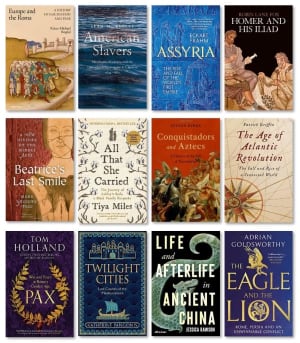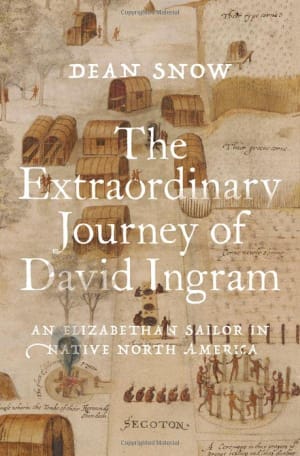Ah Rahim, now you’re perplexed. Stick to truth and you lose the world, stick to lies and you never get Ram.
Abdur Rahim, statesman to the Mughal court and poet, 1556 to 1627. Quotation from Courting India by Nandini Das.
Back in 2011 I attended an ambassador’s reception in Erbil in Northern Iraq1 having been invited along by a friend who I was visiting at the time. Listening to the ambassador’s speech2 I realised that my glamorous notions of his job were completely incorrect. The ambassador was a mouthpiece for the British state and if he believed anything he was saying that was simply a happy coincidence3. I resolved then, as I waited in vain for a platter of foil wrapped chocolates, that if ever I was offered a job as ambassador I would refuse. To my good fortune I have never yet been placed in this uncomfortable situation.
Reading about Thomas Roe, the first English ambassador to the Mughal court in 1616, in Courting India: England, Mughal India and the Origins of Empire by Nandini Das has confirmed my prejudices - it is one of the most overrated jobs in the world.
What’s the book about?
Courting India follows ambassador Roe from his English upbringing and prior misadventures - set against the backdrop of James I’s accession to the English throne after Elizabeth I had died - then on to his journey to India and life at the Mughal Imperial court.
Das’ work is a detailed, almost day by day account. The main source is Roe’s journal, which he was obliged to write by the East India Company, his co-employer, along with James I of England. We hear first hand from Roe about the difficulties he faced in establishing himself with the imperial inner circle in India - for most of whom England was an unknown irrelevance - and the troubles caused by his fellow countrymen running amok whenever they were let off a boat.
We also get the other side of the story, as the Mughal Emperor Jahangir also kept a daily diary which has survived. The English ambassador goes almost completely unnoticed in this journal - a curiously dressed impoverished representative of a small far-off land.
The mind's eye
An overriding theme of the book is how do you choose to view and react to other cultures? What is your frame of reference when you see something totally new? Thomas Roe when confronted by the dazzling opulence of the Mughal court chose to see it as something of a sham: by downgrading it to a theatrical performance he could maintain his sense of cultural superiority despite only having one change of underpants.
Roe though was also performing for an audience - he knew that both his employers and future English generations were likely to read his journal. As an English ambassador he must have felt some pressure to present himself in his writings as an upright figure whose head wasn’t turned by foreign ways, no matter how impressive.
Where does it all begin?
There is also a theme of beginnings: Roe’s embassy was the first from England to India. But given it achieved effectively nothing, and nothing really changed for the next one hundred years, does being ‘the first’ actually mean anything? Das presents the narrative and lets us judge for ourselves.
Ending well
Talking of beginnings, Courting India took a while to get going for me. The first few chapters, presenting the comings and goings of the English royal court, with a bit on Roe’s early life, were interesting without being engrossing.
But when Roe finally arrives in India and gets to the imperial Mughal court in Ajmer I found myself enthralled - perhaps I am more easily captured by the extravagance of the Mughal court than Roe was. Here is a flavour of Roe’s outing to meet the emperor for the first time:
...the thudding footsteps of the royal elephants outside, the animal scent of hay and leather from the Persian horses snorting their impatience, mingled with the cool water sprayed in the air, perfumed with the attar of rose and jasmine, the music of the naubat floating from the naqqar khana, ‘solemn, grand, and melodious’
Nandini Das, Courting India
I was also fascinated by Roe’s reaction to events. Because Roe has clear faults and makes mistakes - while being basically decent - he comes across as quite a likeable character.
Travel guide
Das is an excellent guide for Roe’s travels. She clearly knows both the English and Indian history inside out and expertly draws our attention to aspects of courtly life - such as the lashkar, the mobile city of tents that accompanied the emperor whenever he was on the move, keeping it’s layout rigorously fixed while the landscape flowed past4.
Conqueror of the world
She is also an excellent interlocutor for the emperor Jahangir, the other star of this book. Curious, open minded, and occasional alcoholic, Jahangir treats the prickly Roe with kindness even though his presents are rubbish. Jahangir accurately records and describes passing comets, examines the gall bladder of a dead wolf (to see if it is similar to a lion), and carefully charts the progress of his beloved newborn saras crane chick. He also orders the blinding of his eldest son when he rebels against him.
Coming to this book I had no real knowledge of the Mughal dynasty and this was a brilliant first introduction.
Style notes
Finally Das is a deft writer. Courting India is a pleasure to read, with a clear and engaging writing style. It is structured well too with each chapter advancing the narrative but also exploring a particular aspect of the period, such as the v East India Company Factors, or the Harem. Plus each chapter took me one tube journey to work to read - just the right length!
Conclusion
Courting India is a brilliant focused narrative history: by sticking to the truth, both the English and Indian versions of it, Das wins us a world.
Actually it was the opening of the British consulate in Erbil but you get the idea. ↩︎
Or maybe he was a consul? ↩︎
I should stress that he wasn’t saying anything controversial, just bigging up John Major, the celebrity guest who appeared to be there to take the credit for the freedom of the Kurdish people in northern Iraq. ↩︎
The lashkar is a fitting metaphor for the book as a whole - as we (and Roe) travel to distant places, we never really leave our upbringing behind. Although we may have to reposition a tent or two to make allowances for the terrain, and gain or lose a companion along the way. ↩︎
Book details
(back to top)- Title -
Courting India : England, Mughal India and the Origins of Empire
- Author -
Nandini Das
- Publication date -
March 2023
- Publisher -
Bloomsbury Publishing
- Pages -
480
- ISBN 13 -
9781526615640
- Podcast episode -
Travels Through Time: Nandini Das The first English embassy to India (1616)
- Amazon UK -
- Amazon US -
Next post
← New history books in July 2023

Last post
The Extraordinary Journey of David Ingram - review →


